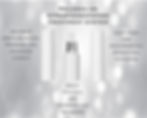Comparing Tyrosinase Inhibitors used in Private Label Skin Care
- Dr Michael Serafin
- Jul 18, 2025
- 3 min read
Updated: Dec 30, 2025
Tyrosinase inhibitors are key ingredients in our Private label skin care brightening products designed to address hyperpigmentation, such as dark spots, melasma, and uneven skin tone. These compounds work by inhibiting tyrosinase, the enzyme responsible for melanin production. Among the most effective tyrosinase inhibitors are 4-butylresorcinol, hexylresorcinol, tranexamic acid and kojic acid. Each has unique properties, benefits, and considerations, making them suitable for different skin types and concerns.
4-Butylresorcinol is a potent tyrosinase inhibitor widely used in skin-brightening products. It works by directly inhibiting tyrosinase activity and reducing melanin synthesis. Studies suggest it is more effective than other inhibitors with a stronger affinity for the enzyme. Its lipophilic nature allows better skin penetration, making it highly effective for treating melasma and post-inflammatory hyperpigmentation. 4-Butylresorcinol is generally well-tolerated but can cause irritation in sensitive skin, especially at higher concentrations.

Hexylresorcinol, a derivative of resorcinol, is another powerful tyrosinase inhibitor with antioxidant and anti-inflammatory properties. Hexylresorcinol not only inhibits melanin production but also improves skin texture and reduces signs of aging. Its efficacy is comparable to hydroquinone but with a better safety profile, making it suitable for long-term use. It may cause mild irritation in some sensitive users.
Tranexamic Acid stands out for its unique mechanism. While it indirectly inhibits tyrosinase by blocking the interaction between melanocytes and keratinocytes, it also reduces inflammation and stabilizes melanin production. Tranexamic acid is effective for melasma and UV-induced pigmentation. It’s gentle, making it ideal for sensitive skin, and can be combined with other brightening agents. However, results may take longer to appear compared to direct inhibitors like 4-butylresorcinol, and it’s less effective for deep dermal pigmentation.
Kojic Acid, derived from fungi, is a natural tyrosinase inhibitor used in skin care products. It chelates copper ions in the tyrosinase enzyme, disrupting melanin synthesis. Kojic acid is effective for treating age spots and sun damage but is less potent than 4-butylresorcinol or hexylresorcinol. Its instability in formulations can limit its use. Combining it with antioxidants like vitamin C can enhance stability and efficacy.
Alpha Arbutin, a natural derivative of hydroquinone, inhibits tyrosinase by releasing hydroquinone slowly, offering a gentler alternative. Lately its safety has been questioned due to the hydroquinone component and is limited to 1% in the EU. It effectively reduces hyperpigmentation with minimal irritation, making it suitable for sensitive skin. Alpha arbutin is stable and works well in combination with ingredients like niacinamide or vitamin C. However, its effects are slower compared to other tyrosinase inhibitors as its less potent and less effective and it may not be useful for severe pigmentation and for this reason we only use it on request in our customised range preferring to use the more effective inhibitors above.
Choosing the right tyrosinase inhibitor depends on skin type, pigmentation severity, and desired speed of results. 4-Butylresorcinol and hexylresorcinol offer potent, fast-acting solutions, while tranexamic acid is a gentler option for sensitive skin or great to combine with more potent inhibitors for more diverse modes of action. Kojic acid is a natural choice but requires careful formulation.
Our private label Brightening Day Cream, Night Cream and Serum contain the inhibitors mentioned above in combination with other ingredients with synergistic modes of action for the most effective treatment system for melasma and pigmentation. They can be used together as a complete treatment system for moderate to severe resistant cases or used individually when less involved treatment is required.

